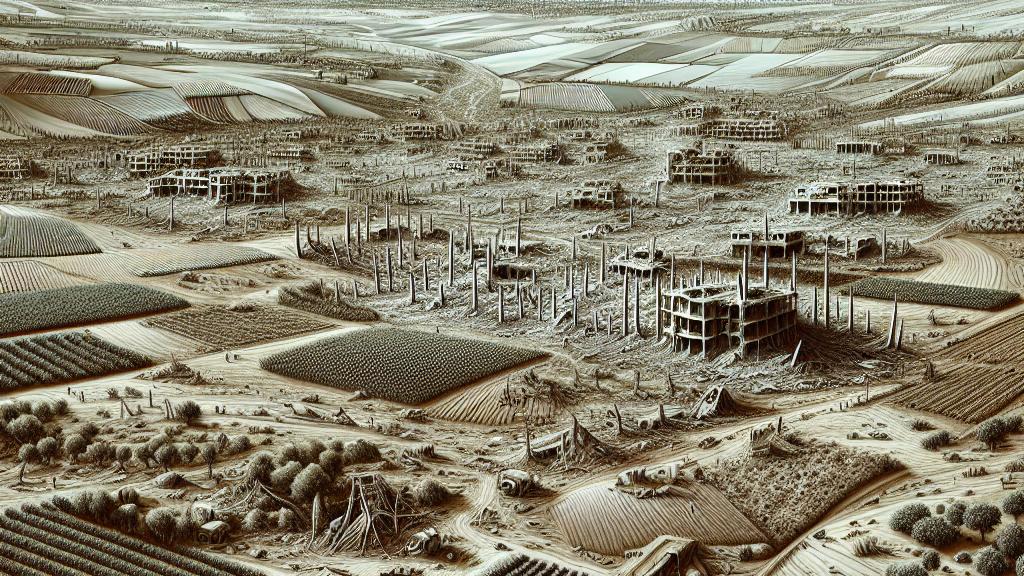Exploring the Impact of War on Agriculture in Gaza
Overview
- Agricultural devastation in Gaza leads to severe economic turmoil.
- Over 2 million residents are trapped in deep food insecurity.
- The road to restoring agriculture in Gaza is filled with challenges.

Devastation of Agricultural Lands
In Gaza, the agricultural landscape has been transformed into a grim testament to the ravages of war. Once lush fields showcasing vibrant olive and citrus trees now resemble barren wastelands. Researchers, using advanced satellite technology, reveal that between 64% and 70% of tree crop fields are in ruins. Picture this: in areas like Gaza City, which was once a hub for agricultural productivity, over 90% of these essential crops have perished. The dramatic shift from fertile, green expanses to desolate fields starkly illustrates the impact of conflict—not just on the economy, but also on the cultural identity that these lands represent.
Food Insecurity at Unprecedented Levels
As conflict spins on, a dire reality unfolds: food insecurity has reached unprecedented heights, ensnaring over 2 million residents in its grip. This community, which once thrived on its self-sustaining agricultural practices, now grapples with the despair of acute food shortages. Imagine paying ten times as much for essentials, like wheat flour, as families struggle to stretch their limited resources. This inflation is not just a statistic; it tells the harrowing story of daily struggles faced by countless families. Thus, the reliance on insufficient humanitarian aid has soared, while hope dwindles, leaving many on the brink of starvation.
Long-Term Recovery Challenges
The consequences of agricultural destruction extend well beyond immediate hunger; they pose long-term challenges that will haunt Gaza for years to come. The implications threaten not only economic stability but also the cultural heritage interconnected with the land. Experts cautiously predict a daunting timeline: decades may be necessary to fully restore the agricultural infrastructure, including essential irrigation systems and greenhouses. Amid this complicated landscape, the appeal for humanitarian assistance rings louder than ever. Without a comprehensive strategy to support the resilient farmers and the devastated communities, the pathway to recovery may remain elusive, leaving the survival of an entire way of life precariously hanging in the balance.

Loading...